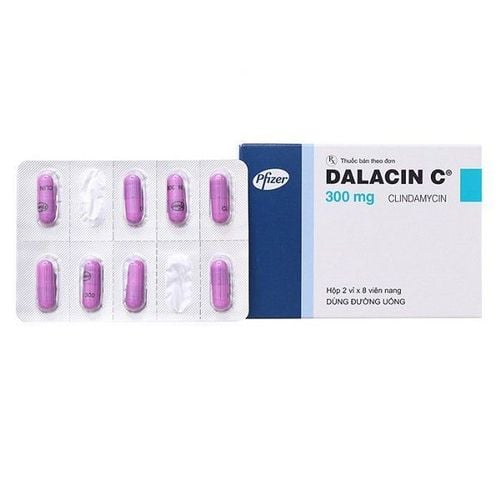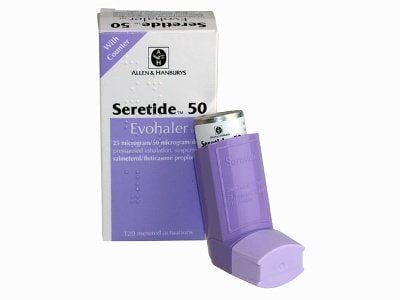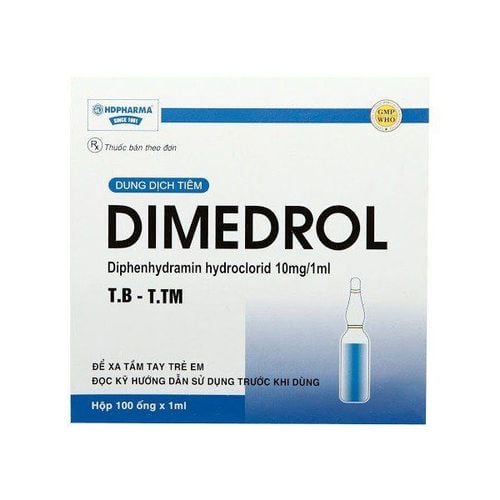What sinusitis patients should and shouldn't eat is a common question since, aside from medication, diet also plays an important role in the progression of the disease. The following article will provide some insights into what to do and what to avoid when dealing with sinusitis.
1. What is sinusitis?
Sinusitis is a condition where the sinuses become inflamed or the epithelial lining inside swells. Normally, sinuses are hollow cavities with a certain amount of moisture. However, when the lining becomes inflamed and swollen, it leads to blockages, which can harbor germs and produce mucus. This mucus is thick and sticky, creating pressure in the sinuses, causing frequent pain in related areas such as headaches, eye pain, or jaw pain.
Daily digestion of food also has a certain impact on sinus health and can alleviate or worsen sinusitis. Therefore, those with sinusitis should carefully learn about foods that can affect their health.
2. What shouldn't sinusitis patients eat?
2.1. Foods likely causing allergies
Sinusitis patients need to be particularly cautious about foods that can easily cause allergies, such as seafood (shrimp, crab, squid) or meats like beef, chicken, duck, etc. This is because sinusitis patients tend to have more sensitive bodies than others. Even if they didn’t experience issues with certain foods before, these can become problematic after developing sinusitis. It’s essential to monitor your body’s reaction to foods and carefully document any allergic responses.
If a sinusitis patient experiences an allergic reaction to food, the nasal mucosa may become inflamed and swollen, accompanied by discomfort or even more severe complications. Therefore, if you have a history of allergies to certain ingredients, it’s best to avoid them.
2.2. Spicy and hot foods
Spicy and hot foods are not only bad for sinusitis but also detrimental to general health. They can irritate the stomach, causing gastric acid reflux into the throat. The acid can damage the throat lining, while excessive mucus is produced and accumulates in the sinuses. Additionally, the nasal mucosa may simultaneously swell and become severely inflamed, leading to infections and discomfort. To feel your best, it’s advisable to avoid spicy and hot foods.
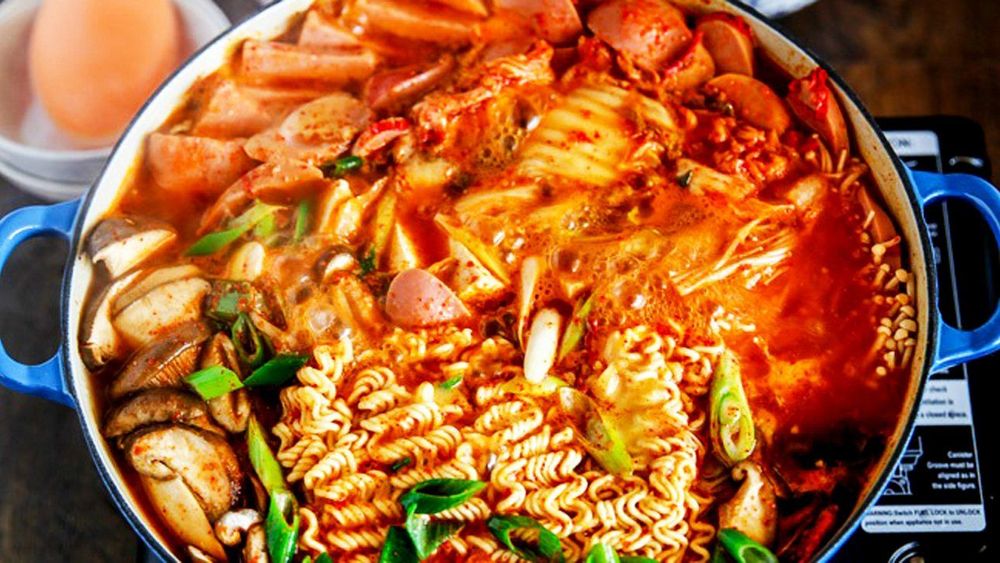
2.3. Alcoholic drinks and stimulants
Certain beverages should be avoided, such as alcohol, beer, carbonated drinks, and coffee.
These beverages can irritate the throat, causing nasal swelling, burning sensations, and worsening the condition. They can also stimulate the sinuses to produce mucus, leading to sinus congestion.
Alcoholic drinks can also cause fatigue, reduce immunity, and prolong the healing process of the sinus mucosa.
2.5. Fruit smoothies and juices
While rich in nutrients, some fruit juices may not be ideal for sinusitis patients as they can increase mucus obstruction in the sinuses, worsening the condition.
3. What should sinusitis patients do?
When suffering from sinusitis, maintaining a balanced and reasonable nutritional intake can help improve the condition quickly. At the same time, it can reduce unpleasant symptoms and prevent the recurrence of sinusitis.
3.1. Essential nutrients for people with sinusitis
• Zinc
Zinc helps reduce inflammation in the sinus and throat areas, which can alleviate pain and inflammation in the sinus cavities if the body is supplied with an adequate amount of zinc.
Foods rich in zinc include seafood, shrimp, crab, pork, etc. However, as these foods can trigger allergies, patients should be mindful of their body’s allergic tendencies before consuming them.
• Natural antibacterial components
In addition to medication, using natural antibacterial components can accelerate healing and minimize side effects caused by drugs. These components are found in spices like onions, garlic, ginger, and honey. However, they should be used in moderation to avoid side effects.
• Omega-3
Omega-3 is important for reducing pain in individuals with respiratory and sinus conditions. Foods rich in Omega-3 include salmon, mackerel, and sardines.
• Vitamin C
Vitamin C reduces inflammatory responses in the nasal mucosa, soothes the nose, and thins mucus. Additionally, it boosts the immune system to fight various diseases. Foods rich in vitamin C include green vegetables and fruits such as oranges, apples, and kiwis.
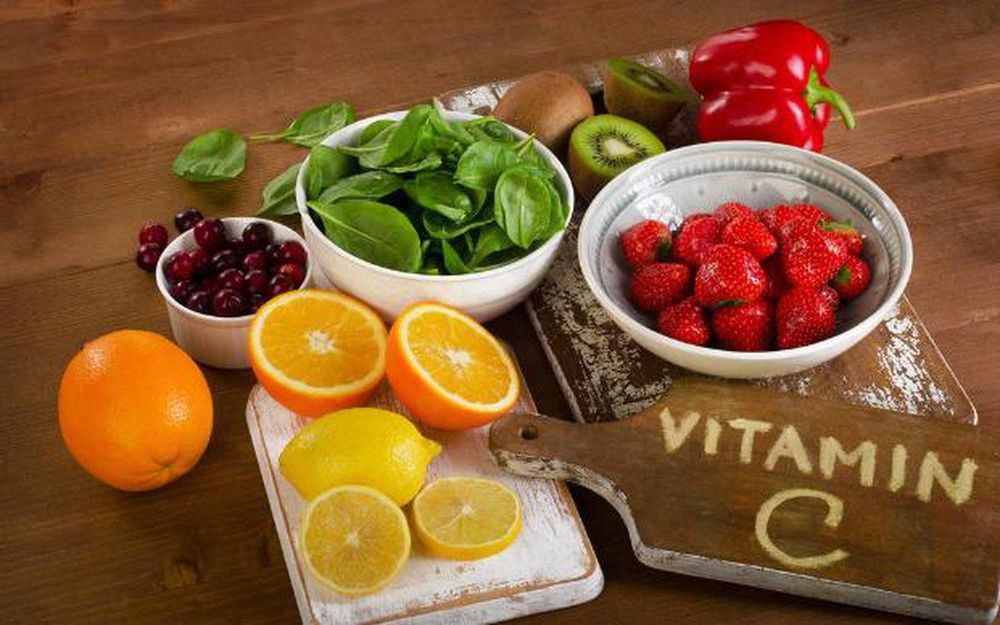
3.2. What to eat when suffering from sinusitis?
• Ginger and turmeric
Ginger contains Gingerol, a bioactive compound with anti-inflammatory properties due to its strong antioxidant activity. This compound acts as a natural antihistamine to counter common inflammatory responses. Gingerol also inhibits the RSV virus, which causes respiratory infections.
Beyond being a flavorful spice, ginger can also be used as a nasal steam ingredient to alleviate sinus discomfort. Notably, it is also an ingredient in ginger tea combined with lemon and honey, which is both delicious and nutritious. Patients can drink ginger tea daily to relieve headaches and sinus pain.
Turmeric is another beneficial food with similar properties to ginger. It contains curcumin, which has anti-inflammatory, antibacterial, and antioxidant effects. Turmeric can be used as a spice or consumed with honey daily. Note: turmeric should not be used by pregnant or breastfeeding women.
• Garlic
Garlic contains alliin, which transforms into allicin in the body, providing antibacterial, antiviral, and antifungal effects. It combats sinusitis agents and cleans inflamed sinuses. Garlic is also rich in vitamin C, B6, magnesium, and scordini, which strengthen the immune system. Garlic can be used as a spice, eaten raw, pickled in alcohol, or used for nasal steaming.
Garlic can be used in various forms, such as a seasoning for dishes, eaten raw, used in steam inhalation, or soaked in alcohol, etc.
• Radishes
White and red radishes are rich in vitamin C, which boosts immunity and weakens cells that damage the sinus mucosa, aiding in flu treatment.
In traditional medicine, radishes are a remedy for easing breathing difficulties and soothing headaches and nasal pain caused by sinusitis.
• Salmon
Salmon is rich in Omega-3, which not only enhances vision and brain development but also alleviates sinus pain. Therefore, salmon is considered a top food for supporting sinusitis patients.
4. Taking care of sinusitis patients
If sinusitis is not detected and treated promptly, it can lead to dangerous complications and affect the patient’s health. Therefore, proper care is crucial:
• Maintain a proper nutritional diet
Sinusitis patients should follow the nutritional guidelines above to reduce symptoms and maintain a healthy lifestyle.
• Pay more attention to the living environment
Clean the house and surrounding plants to create a fresh and less polluted space.
• Wear a mask when going outside to prevent dust exposure.
When going to dusty places, such as construction sites, wear a mask to block dirt from entering your body through your nose.
• Daily hygiene for the nose, mouth, and throat
Brush your teeth twice a day (morning and evening) for about 2 minutes each time. Gargle and rinse your nose with saline solution regularly.
• Keep your body warm during the cold season
Cold weather is a time when people with sinusitis need to be especially careful because being careless can worsen the condition. It is advisable to keep the head, neck, hands, feet, and nose warm to prevent sinusitis from causing discomfort.

• Drink enough water
Drink about 2 liters of water daily. Adequate hydration thins the mucus in your nose and throat, making it easier to breathe.
Through this article, we hope to provide readers with a comprehensive understanding of what to do and avoid when suffering from sinusitis. If you experience any symptoms, visit a medical facility immediately to consult a specialist for further advice.
To arrange an appointment, please call HOTLINE or make your reservation directly HERE. You may also download the MyVinmec app to schedule appointments faster and manage your reservations more conveniently.
To arrange an appointment, please call HOTLINE or make your reservation directly HERE. You may also download the MyVinmec app to schedule appointments faster and manage your reservations more conveniently.

